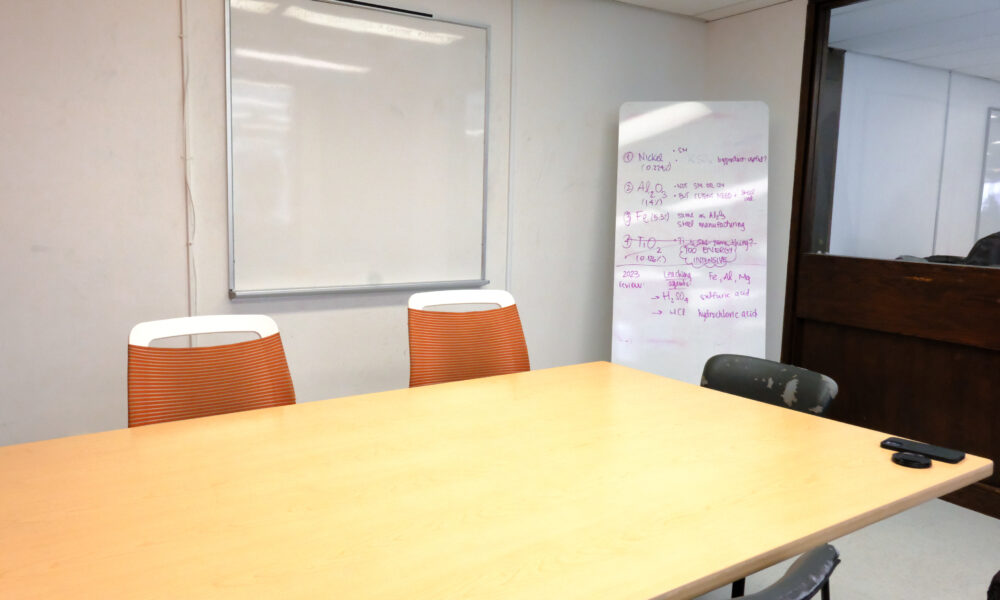Following a five-week pause on room bookings for speaker events, McGill has released an updated procedure for event bookings on campus. The room booking pause was enacted after a talk featuring Mosan Hassan Yousef was moved online in response to a death threat—which came as part of backlash against the talk due to the speaker’s prior Islamophobic comments on social media. The procedure, which went into effect on Jan. 1, involves a new form for room booking requests and codifies the security measures McGill may implement in response to concerns about safety at an event.
The guidelines centralize the room-booking process, using a single form to book any McGill-administered space. The new process also requires a room booking request to be submitted 10 days in advance, rather than the previous five-day window. The guidelines do not explicitly state that McGill may modify or cancel an event on the basis of its content or the speaker’s past statements, although they do note that “Requestors are responsible for ensuring that their events’ proceedings, speakers, etc., remain in accordance with applicable laws and university policies.”
Students’ Society of McGill University (SSMU) Vice-President (VP) University Affairs Abe Berglas commented on the policy’s lack of language outlining a path to cancel an event based on the past statements of invited speakers or the content of the event in an interview with The Tribune.
“I think maybe [the policy] is trying to depoliticize the issue, and that’s why it’s framed in terms of security alone and not reasons why people may be protesting a speech,” Berglas said. “I’m […] waiting to see what McGill does in its actions, like what events it tries to cancel or make more difficult to happen, and then what events it facilitates.”
Additionally, the revised room booking procedure states that, in response to security concerns, McGill reserves the right to require organizers to implement ticketing, limit attendance to McGill community members, or relocate to a different room. Should these adjustments fail to resolve the security concerns, McGill also reserves the right to move an event online.
Although she has not yet had any experience with McGill implementing security measures through this policy, Arts Undergraduate Society VP Internal Sophie Nguyen has used the new booking form and told The Tribune that it has been an improvement so far.
“It has been smooth sailing this semester,” Nguyen wrote in an email. “There have been a couple of kinks that needed tinkering but otherwise the system seems to be faster and more efficient.”
Despite this, several members of the McGill University Senate have raised criticisms about McGill’s communications around their pause on room bookings this November. In a written statement to The Tribune, the McGill Media Relations Office (MRO) stated that the decision to pause new room bookings was taken seriously and announced in response to the severity of the security concerns, which included reports of a death threat, surrounding the talk featuring Yousef.
“In the interests of security and stability, notably for students heading into the examination period, a pause was announced […] for five weeks, more than three of which fell in the examination and winter holiday period,” the MRO wrote. “We saw this as the only viable option in the circumstances.”
SSMU Arts Senator Vivian Wright submitted a question at the Jan. 15 McGill Senate meeting alleging that many students interpreted the phrasing of McGill’s initial email announcing the pause in room bookings as including events like final exam review sessions and end-of-semester parties. The university did not clarify until several days later that it was only intended to apply to speaker events. SSMU Arts Senator Anzhu Wei spoke with The Tribune about this confusion.
“Amongst the student senators and the Senate caucus, we had heard a lot of complaints from different student departments about how this really had a very big negative impact for a lot of their events,” Wei said. “It sounded like this really was a breakdown of communication where the administration either didn’t fully think through the full impact of their decision, or that they just didn’t communicate it effectively.”









